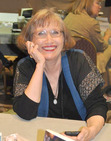Meg Benjamin's Blog, page 20
March 24, 2012
Six Sentence Sunday – Long Time Gone
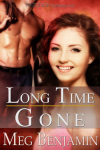 Here's more from my fourth Konigsburg book, Long Time Gone. This follows right after last week's excerpt, which, you may recall, was the first kiss between my hero, Erik, and my heroine, Morgan. Both are still a little taken aback by the whole thing. But not so taken aback that they're not ready to do it again. Soon.
Here's more from my fourth Konigsburg book, Long Time Gone. This follows right after last week's excerpt, which, you may recall, was the first kiss between my hero, Erik, and my heroine, Morgan. Both are still a little taken aback by the whole thing. But not so taken aback that they're not ready to do it again. Soon.
Her eyes were huge, her mouth a thin line. "I didn't…" she stuttered, then stopped.
"I'm sorry about the call," he said quietly, "I'm not sorry about the kiss. Not hardly."
She still watched him, as if she were trying to make up her mind about something, then the corners of her mouth edged up, slowly. "Drive carefully."








March 21, 2012
“Mind Rape”
 The Kay Manning plagiarism scandal from a few weeks ago (Dear Author describes the debacle here) has revived memories of perhaps the most notorious plagiarism scandal in the romance writing world: the Janet Dailey/Nora Roberts face-off in 1997. For those who need a recap, Roberts sued Dailey for plagiarism after a reader pointed out that large swaths of Dailey’s novels Aspen Gold and Notorious were lifted word-for-word from Roberts’ work. After a protracted legal battle, Dailey settled out of court and Roberts donated the money to Literacy Volunteers Of America.
The Kay Manning plagiarism scandal from a few weeks ago (Dear Author describes the debacle here) has revived memories of perhaps the most notorious plagiarism scandal in the romance writing world: the Janet Dailey/Nora Roberts face-off in 1997. For those who need a recap, Roberts sued Dailey for plagiarism after a reader pointed out that large swaths of Dailey’s novels Aspen Gold and Notorious were lifted word-for-word from Roberts’ work. After a protracted legal battle, Dailey settled out of court and Roberts donated the money to Literacy Volunteers Of America.
But that’s not really what I want to talk about now. Roberts was clearly in the right and Dailey was very clearly in the wrong (as was Manning). But the thing that makes me uncomfortable about all of this was Roberts’ initial reaction to the discovery that Dailey had plagiarized her books: she called it, famously, “mind rape.”
Now that term is coming up again in the discussions of the current plagiarism cases. And it bothers me. A lot.
What happened to Roberts—and Gina Wilkins and Liz Fielding and Julie Kenner and Catherine Mann and probably lots of others—is theft. Somebody decided to appropriate their creations and pass them off as their own. The fact that this action was theft rather than rape doesn’t diminish the heinous nature of the act. I’m willing to acknowledge that theft makes you feel violated in some ways—people whose homes have been burglarized frequently say this, and as someone whose home was burglarized a couple of times, I can totally understand their point of view. But for me there’s a big difference between the feeling of disgust and anger you have after a burglary and the feeling of violation a rape survivor has after being assaulted.
Here’s the thing. Rape is a crime of violence. It involves a brutal penetration of the body. For many women, it’s the worst crime imaginable, which is one reason that including rape in a novel as anything other than a crime has been banned by most romance publishers. To use the word rape to stand for anything other than its real meaning, the forcible penetration of the body, runs the risk of making the word itself less powerful—and perhaps by extension making the crime itself seem less onerous.
The distinction here hinges on the issue of violence. Rapes are by definition profoundly violent. Plagiarism just isn’t.
This distinction should in no way be taken as an attempt to diminish the seriousness of what Manning and Dailey did. They’re thieves, pure and simple, and they deserved to be punished for their actions. But theft and rape are not the same thing.
In the end, these authors were the victims of a crime. Something was taken from them without their consent, and that sucks. But they weren’t raped. Thank God!








"Mind Rape"
 The Kay Manning plagiarism scandal from a few weeks ago (Dear Author describes the debacle here) has revived memories of perhaps the most notorious plagiarism scandal in the romance writing world: the Janet Dailey/Nora Roberts face-off in 1997. For those who need a recap, Roberts sued Dailey for plagiarism after a reader pointed out that large swaths of Dailey's novels Aspen Gold and Notorious were lifted word-for-word from Roberts' work. After a protracted legal battle, Dailey settled out of court and Roberts donated the money to Literacy Volunteers Of America.
The Kay Manning plagiarism scandal from a few weeks ago (Dear Author describes the debacle here) has revived memories of perhaps the most notorious plagiarism scandal in the romance writing world: the Janet Dailey/Nora Roberts face-off in 1997. For those who need a recap, Roberts sued Dailey for plagiarism after a reader pointed out that large swaths of Dailey's novels Aspen Gold and Notorious were lifted word-for-word from Roberts' work. After a protracted legal battle, Dailey settled out of court and Roberts donated the money to Literacy Volunteers Of America.
But that's not really what I want to talk about now. Roberts was clearly in the right and Dailey was very clearly in the wrong (as was Manning). But the thing that makes me uncomfortable about all of this was Roberts' initial reaction to the discovery that Dailey had plagiarized her books: she called it, famously, "mind rape."
Now that term is coming up again in the discussions of the current plagiarism cases. And it bothers me. A lot.
What happened to Roberts—and Gina Wilkins and Liz Fielding and Julie Kenner and Catherine Mann and probably lots of others—is theft. Somebody decided to appropriate their creations and pass them off as their own. The fact that this action was theft rather than rape doesn't diminish the heinous nature of the act. I'm willing to acknowledge that theft makes you feel violated in some ways—people whose homes have been burglarized frequently say this, and as someone whose home was burglarized a couple of times, I can totally understand their point of view. But for me there's a big difference between the feeling of disgust and anger you have after a burglary and the feeling of violation a rape survivor has after being assaulted.
Here's the thing. Rape is a crime of violence. It involves a brutal penetration of the body. For many women, it's the worst crime imaginable, which is one reason that including rape in a novel as anything other than a crime has been banned by most romance publishers. To use the word rape to stand for anything other than its real meaning, the forcible penetration of the body, runs the risk of making the word itself less powerful—and perhaps by extension making the crime itself seem less onerous.
The distinction here hinges on the issue of violence. Rapes are by definition profoundly violent. Plagiarism just isn't.
This distinction should in no way be taken as an attempt to diminish the seriousness of what Manning and Dailey did. They're thieves, pure and simple, and they deserved to be punished for their actions. But theft and rape are not the same thing.
In the end, these authors were the victims of a crime. Something was taken from them without their consent, and that sucks. But they weren't raped. Thank God!








March 17, 2012
Six Sentence Sunday – Long Time Gone
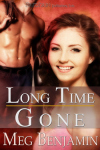 Here's a bit from Long Time Gone, which won an RT Reviewer's Choice Award last year. My hero, Erik, Konigsburg chief of police, is in the process of kissing the heroine, Morgan, for the first time. And it's sort of a surprise for both of them.
Here's a bit from Long Time Gone, which won an RT Reviewer's Choice Award last year. My hero, Erik, Konigsburg chief of police, is in the process of kissing the heroine, Morgan, for the first time. And it's sort of a surprise for both of them.
Somewhere his brain went on red alert: Danger, danger, Will Robinson. His body surged right ahead, hardening almost instantly. The warm weight of her breast filled one hand and he rubbed his palm against the other, her faint moan raising prickles on his scalp.
She held her hands at the sides of his chest, then smoothed them around his body, pulling herself tight against him. Erik heard a melodic chirping and wondered if it was him or her.
Until he realized it was his cell phone.








March 13, 2012
Don’t Give Up?
 Recently Nick Mamatas wrote a nice blog post about advice experienced writers should stop giving inexperienced writers, and the first thing on the list was “Never Give Up.” Mamatas pointed out that some people definitely should give up, and before telling them to waste more time on a fruitless enterprise, writers should perhaps consider the person they’re talking to a bit more carefully.
Recently Nick Mamatas wrote a nice blog post about advice experienced writers should stop giving inexperienced writers, and the first thing on the list was “Never Give Up.” Mamatas pointed out that some people definitely should give up, and before telling them to waste more time on a fruitless enterprise, writers should perhaps consider the person they’re talking to a bit more carefully.
I have to admit, when I first read that particular piece of advice, I was a little taken aback. I used to judge contests (although I don’t judge as many now), and I used to routinely run across entrants whose work was so hopeless that I just felt like writing “find another hobby” on the MS. I didn’t, largely because I kept thinking how devastated I would have been if someone had written something like that to me when I was just starting out. My usual strategy in cases like that was to recommend that the writer find a critique group to work with. And yet, as a critique group member, I also came across writers so hopeless that I had no idea how to help them. Still, as a judge and a critiquer, I never considered it my job to stomp on people’s dreams (usually, I leave that to the publishing industry).
But Mamatas has a point. Writers who have no feel for English grammar or style, who fall back on cliché after cliché, who write the kind of overwrought prose that stopped showing up in romance thirty years ago, who have plots that are either hackneyed or hopelessly over the top are simply not going to put out a readable book unless they undergo some kind of miraculous transformation. Is it better to let them go on flailing, becoming ever more frustrated at the lukewarm response they receive or is it better to be brutally honest and tell them this isn’t going to work?
My problem here may be more philosophical than anything else. Back when I was an English teacher, I taught for a few years at a college that specialized in students who might not make it into more traditional institutions, particularly students from inner cities on the East Coast. Many of these students were desperately far behind where they should have been, given that they were all high school graduates. And, sad to say, several of them stayed right there. Advancing required a lot of work, and not everybody was interested in doing it. But some students were. They took advantage of every resource available to them, and they got better. It was painful and it took a while, but eventually they were functioning at something close to the level of their fellow students.
So it’s hard for me to say absolutely that somebody is hopeless. To some extent, the degree of possibility depends largely on how willing writers are to put in the necessary hours. Some writers aren’t, and I can’t blame them. But some writers are. And they may actually be able to pull it off.
Who am I to say they can’t?








Don't Give Up?
 Recently Nick Mamatas wrote a nice blog post about advice experienced writers should stop giving inexperienced writers, and the first thing on the list was "Never Give Up." Mamatas pointed out that some people definitely should give up, and before telling them to waste more time on a fruitless enterprise, writers should perhaps consider the person they're talking to a bit more carefully.
Recently Nick Mamatas wrote a nice blog post about advice experienced writers should stop giving inexperienced writers, and the first thing on the list was "Never Give Up." Mamatas pointed out that some people definitely should give up, and before telling them to waste more time on a fruitless enterprise, writers should perhaps consider the person they're talking to a bit more carefully.
I have to admit, when I first read that particular piece of advice, I was a little taken aback. I used to judge contests (although I don't judge as many now), and I used to routinely run across entrants whose work was so hopeless that I just felt like writing "find another hobby" on the MS. I didn't, largely because I kept thinking how devastated I would have been if someone had written something like that to me when I was just starting out. My usual strategy in cases like that was to recommend that the writer find a critique group to work with. And yet, as a critique group member, I also came across writers so hopeless that I had no idea how to help them. Still, as a judge and a critiquer, I never considered it my job to stomp on people's dreams (usually, I leave that to the publishing industry).
But Mamatas has a point. Writers who have no feel for English grammar or style, who fall back on cliché after cliché, who write the kind of overwrought prose that stopped showing up in romance thirty years ago, who have plots that are either hackneyed or hopelessly over the top are simply not going to put out a readable book unless they undergo some kind of miraculous transformation. Is it better to let them go on flailing, becoming ever more frustrated at the lukewarm response they receive or is it better to be brutally honest and tell them this isn't going to work?
My problem here may be more philosophical than anything else. Back when I was an English teacher, I taught for a few years at a college that specialized in students who might not make it into more traditional institutions, particularly students from inner cities on the East Coast. Many of these students were desperately far behind where they should have been, given that they were all high school graduates. And, sad to say, several of them stayed right there. Advancing required a lot of work, and not everybody was interested in doing it. But some students were. They took advantage of every resource available to them, and they got better. It was painful and it took a while, but eventually they were functioning at something close to the level of their fellow students.
So it's hard for me to say absolutely that somebody is hopeless. To some extent, the degree of possibility depends largely on how willing writers are to put in the necessary hours. Some writers aren't, and I can't blame them. But some writers are. And they may actually be able to pull it off.
Who am I to say they can't?








March 10, 2012
Six Sentence Sunday – Be My Baby
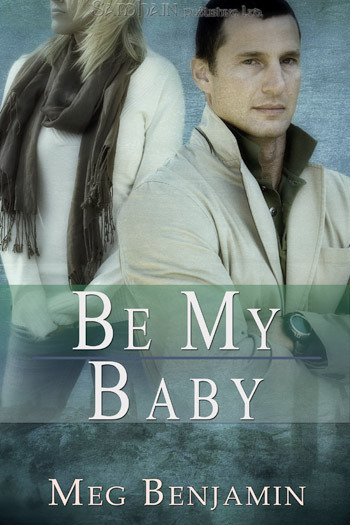 Here's another bit from Be My Baby. It's part of the heroine's speech to her nasty, potentially kidnapping former mother-in-law. Go, Jess!
Here's another bit from Be My Baby. It's part of the heroine's speech to her nasty, potentially kidnapping former mother-in-law. Go, Jess!
Jess stood slowly, wiping her palms on her thighs. She met Lydia's basilisk gaze one more time. "Listen to me, old woman. You will never get my son, never. Even if you manage to get rid of me, Lars will become his guardian. And Lars will be much harder to get rid of, believe me."








March 6, 2012
Guest Blogger Debra Parmley
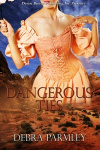 Welcome to Debra Parmley, who's saving me a lot of time and imagination by interviewing herself. Thanks a lot, Debra!
Welcome to Debra Parmley, who's saving me a lot of time and imagination by interviewing herself. Thanks a lot, Debra!
How does it feel when you write?
It feels different each time I come to the blank page. In this way, it reminds me of yoga, or dance, for our bodies and spirits can be different depending on the day. For me, the best days are when I can step into the joy of writing, caught up in the flow of it. These are the days when I can forget to eat, or to drink the water that is sitting right next to me. Other days I am happy to be writing, but not as swept away into story. Editing days are task oriented and give the satisfaction which comes from completing a task.
What's your current writing space like? What's your dream writing space like?
My writing space has changed over the years. This desk, that one, this room, that one. I now write on my laptop only and my writing space is wherever I decide it is. I have written at the desk, the kitchen table, the couch, in bed, at the library, the airport, the hotel room, in the car. I have even written on a legal pad while camping in an old fort at a medieval re-enactment. I'm looking forward to taking my first train to Chicago in April for the RT convention and suspect 'on a train' will soon join the list of places where I have written.
How did you get started as a writer?
I believe I was born a writer, from the singsong rhymes I would make up as a child, to the poetry and diaries of my teen years. In college I had a few poems published in literary journals and began writing short stories. I turned to novel length fiction not long after my first short story was published. What was your journey to publication like? Oh my. Well it has been quite the roller coaster ride. The first novel I ever wrote came about as a challenge issued to me at the Ozark Creative Writers conference in Eureka Springs, AR. Dusty Richards, a western novelist challenged those of us who had never written a novel to write one and have it to him by the next conference and the winner would receive a complete read from his agent. At the time I had written only poems and short stories. So I entered, but by the time the next conference had come around he was no longer with that agent. Instead he sat with me and went over the first few chapters giving me tips. I then came home and started rewriting it. Then I attended my first RT convention and entered it in the Bobbi Smith beginning writers competition. My story was a finalist and Bobbi told me the story really begins in chapter three. I went home and rewrote it. The following year when I went to the RT convention I had entered it in the American Title II competition where it was a finalist. Eleven of us were competing for one publishing contract with Dorchester Publishing and RT magazine would feature us in each issue as readers voted for the winner. Suddenly I had to have a website and get the PR going to get votes. All this and I didn't even have a book out yet. It was an exciting time. Quite the wild ride. I was bumped in the second round, but soon after got an agent. About a year after that he sold A Desperate Journey to Samhain. I used to call the novel my training wheel novel because I learned so much about writing with that one. The learning curve was tremendous. My newest book, Dangerous Ties, was the first novella I ever wrote, so there was a learning curve there as well, but nothing like that first book was.
What's your favorite genre, and why?
Romance is my favorite genre, because a romance will always end with a happy every after. If a love story does not, it is not romance.
Tell us about your new book.
Dangerous Ties is a western historical romance. Lillian's fiancé convinces the townsfolk to exchange their gold for his worthless bank notes. When he disappears, every eye turns to Lillian. Even her cousin Carl insists she knows where the gold is. Carl is deeply indebted to Kingston, owner of the saloon and small town criminal. When Nick discovers Lillian she's strung up over a mineshaft and the rope is breaking.
My stories always come to me with an opening scene. I see the heroine in a situation and wonder what happened to her, how did she get there and where does she go from there? For Dangerous Ties, I saw the heroine strung up over a mineshaft and the rope was breaking. Everything else grew from that initial scene.
In the beginning of the book, Lillian sees herself as a victim, but by the end she realizes she is a survivor. Someone once asked me why I write about victims. (In my first book the heroine was married to an abusive man.) I don't see myself writing about victims. I write about survivors.
Dangerous Ties is the first novella I ever wrote. This story has had an interesting ride because I was trying to please my former editor, while learning the shorter form, instead of listening to what the story wanted to be. I think the greatest lesson I learned there was, never try to pull your story in a direction it does not want to go. Thankfully they are somewhat like mules and will dig in their heels until the writer comes to their senses.
Tell us about your journey in becoming published with Desert Breeze.
I believe a guardian angel was whispering in my ear at the RT Booklovers convention in LA last spring, because I walked into the fairy masquerade themed dinner ball looking for a table with room for one more person and felt drawn to the table where Gail Delany and Jenifer were seated. I'd never met them before and had no idea I would be sitting next to my future editor In chief and art/ marketing director! We had a very lovely dinner and talked about Desert Breeze and about my novella, Dangerous Ties, which Gail invited me to submit. I did and here I am not even a year later with my second book now available through Desert Breeze Publishing and a third, Aboard the Wishing Star, coming out in Oct.
To learn more about Debra, visit her Web site: http://www.debraparmley.com
Buy links:
Amazon: http://www.amazon.com/Dangerous-Ties-ebook/dp/B0078WTKN6
Nook: http://www.barnesandnoble.com/s/dangerous-ties-by-debra-parmley
http://stores.desertbreezepublishing.com/-strse-299/Dangerous-Ties/Detail.bok








March 3, 2012
Six Sentence Sunday – Be My Baby
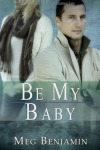 Be My Baby is the closest I've come so far to romantic suspense. My hero and heroine, Lars and Jess, are both single parents fighting off a very determined kidnapper. In this excerpt, they've both just gone through a shock and are, well, recovering together.
Be My Baby is the closest I've come so far to romantic suspense. My hero and heroine, Lars and Jess, are both single parents fighting off a very determined kidnapper. In this excerpt, they've both just gone through a shock and are, well, recovering together.
Jess's fingers moved to his chest again, rippling through his chest hair. For a moment, he was afraid he might explode where he stood.
"Easy," he gasped, "control is not exactly my strong suit right now."
Jess didn't seem to hear him. He felt her fingers moving again, and then she leaned forward and ran her tongue across his nipple, sending a jolt of sensation straight to his groin.
He was in deep, deep trouble.
You can find more excerpts and the blurbs for all my Konigsburg books here.








February 25, 2012
Six Sentence Sunday – Wedding Bell Blues
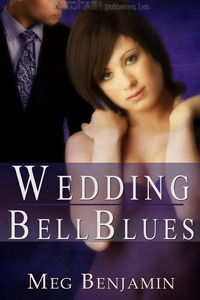 So here's a little more from the first love scene in Wedding Bell Blues. Janie is teaching Pete to dance. Or anyway, that's what she thinks. Of course, things begin to move beyond dancing pretty quickly.
So here's a little more from the first love scene in Wedding Bell Blues. Janie is teaching Pete to dance. Or anyway, that's what she thinks. Of course, things begin to move beyond dancing pretty quickly.
Janie rose against him, her legs opening against the warm heat of his arousal, trying to find the right spot as her head swam.
She was losing it—she needed to pull away, right now, but she didn't.
She moved closer, slipping up onto her toes until the V of her crotch fit across his groin. Pete groaned, his arm fastening tight around her waist, pulling her flat against him.
And then he raised his head to stare down at her. "Janie Dupree," he said softly, "you are lightning in a bottle."









